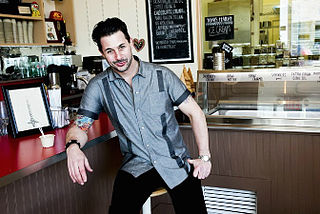A Quote by Terry Tempest Williams
Whatever artistry may occur within the manuscript, the magic happens for me in the last draft. Whatever I have been resistant to say must finally be said. In the end, I see where my pencil has been leading me.
Related Quotes
A writer, or any man, must believe that whatever happens to him is an instrument; everything has been given for an end. This is even stronger in the case of the artist. Everything that happens, including humiliations, embarrassments, misfortunes, all has been given like clay, like material for one's art. One must accept it.
It would be difficult, perhaps, to find the annals of a nation less stained with crimes than those of the Armenians, whose virtues have been those of peace, and their vices those of compulsion. But whatever may have been their destiny and it has been bitter whatever it may be in future, their country must ever be one of the most interesting on the globe.
Usually, you know, you're at a table and you're the only woman, you've got this idea, you finally speak up - I mean, I've been in some settings where every head turns toward me and then they all turn away as if I've never spoken. Which I think happens when whatever I said was so out of the blue, or so awkward, that they just didn't know how to respond.
You have to say, whatever it is that I say or do or think or teach must be something that will be consistent with who Jesus Christ was. So that is your ultimate litmus test, not that you've got specific words to say, whatever they may be saying. It is what is being said. They're consistent with the revelation of God that we encounter in Jesus.
Marion Zimmer Bradley took apart my first submission to her, covered the manuscript in red ink revisions, and told me to try her again. I had never been so reeling with authorial joy as I had been that day, holding Marion's letter and seeing that ravaged manuscript - finally, it meant that someone cared!



































